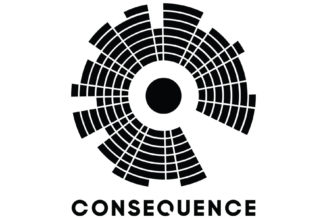
Song of the Week breaks down and talks about the song we just can’t get out of our head each week. Find these songs and more on our Spotify Top Songs playlist. For our favorite new songs from emerging artists, check out our Spotify New Sounds playlist. This week, Phoebe Bridgers more than delivers on her first solo release of 2022.
For an artist whose discography is packed with piercingly sad lyrics, there is perhaps no line as nihilistic in Phoebe Bridgers‘ catalogue as the closer to her latest, “Sidelines”: “I used to think you could hear the ocean in a seashell/ What a childish thing.”
Written for the upcoming Hulu adaptation of Sally Rooney’s Conversations with Friends, “Sidelines” is another slow, sad yee-haw from the indie singer-songwriter, the type for which she’s become so rightfully beloved. She has a knack for unlocking big, existential questions through the lens of hyper-specific, pedestrian details — “The billboard said the end is near/ I turned around, there was nothing there,” she says in “I Know the End”; “I’m high and feeling anxious inside of a CVS,” in “Silk Chiffon.”
In this track, it’s the somber relatability of “I used to fetishize myself, now I’m talking to my house plants” that sticks after the final chords have rung out. Overall, the atmospheric, string-laden song feels perfectly attuned to the moody worlds Sally Rooney crafts in stories like Conversations with Friends, in which characters are good and bad, messy and forgivable, kind and cruel.
It’s interesting to consider the thread that ties Bridgers to Paul Mescal, who exploded after an award-winning turn in Hulu’s first Rooney adaptation, Normal People. Is this a love song? Is it an ode to the freedom that can come with cynicism? She emphasizes over and over again that she’s not afraid of great tragedies or a terrible death, but she is afraid of losing someone, or reaching the end and realizing that none of this matters. Like the often contradictory and painfully human characters in these stories, the song has the freedom to be whatever it wants.
— Mary Siroky
Contributing Editor
[flexi-common-toolbar] [flexi-form class=”flexi_form_style” title=”Submit to Flexi” name=”my_form” ajax=”true”][flexi-form-tag type=”post_title” class=”fl-input” title=”Title” value=”” required=”true”][flexi-form-tag type=”category” title=”Select category”][flexi-form-tag type=”tag” title=”Insert tag”][flexi-form-tag type=”article” class=”fl-textarea” title=”Description” ][flexi-form-tag type=”file” title=”Select file” required=”true”][flexi-form-tag type=”submit” name=”submit” value=”Submit Now”] [/flexi-form]










Tagged: Alternative Music, FEATURES, Indie, Indie pop, music, music blog, Top Song of the Week